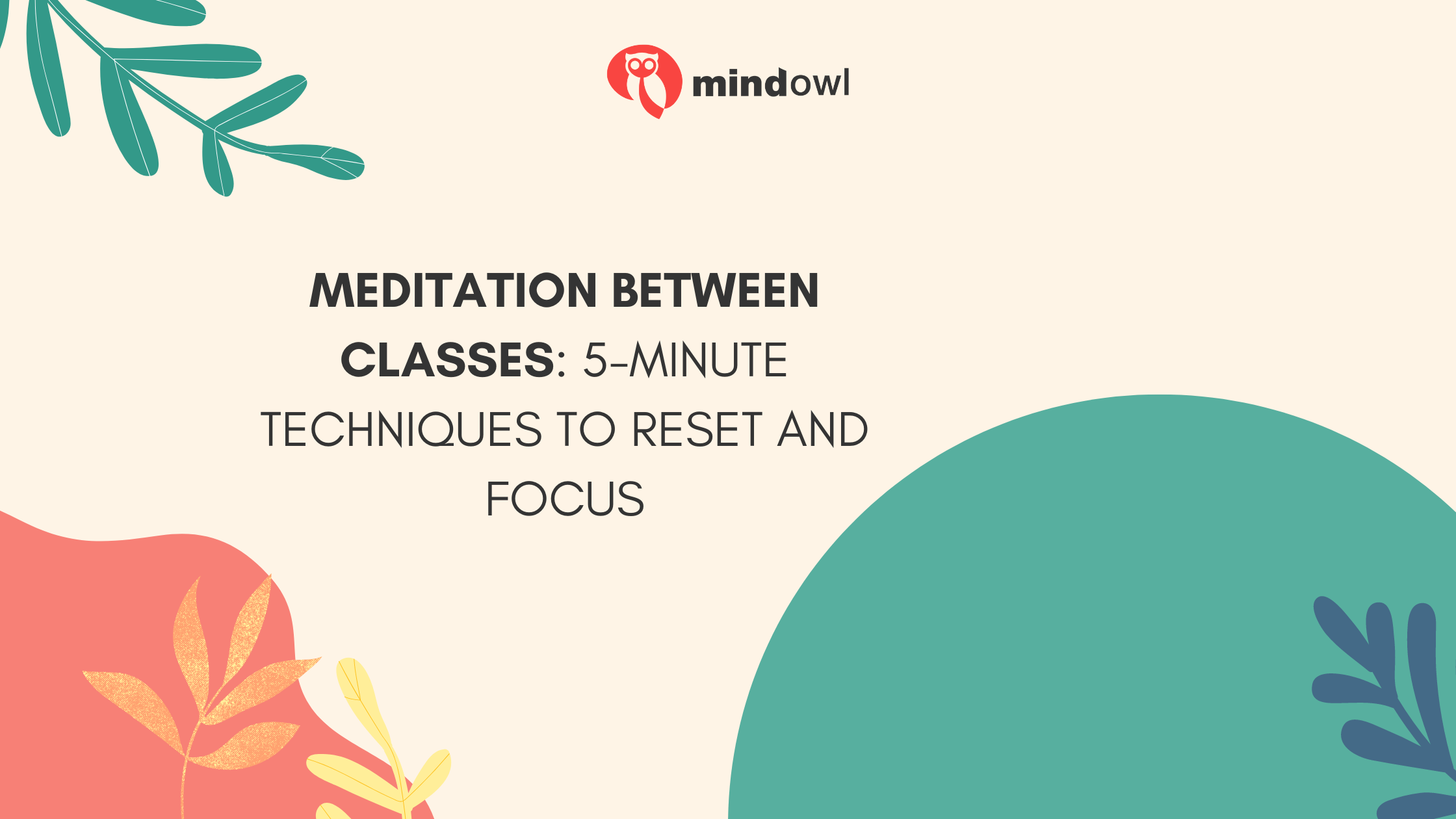Have you ever felt like your brain is in a million places at once? Imagine pressing a magic reset button that helps you chill and focus in just five minutes. That’s what meditation can do for you! This practice can offer a moment of peace between classes, before exams, or during any short break.
Now, we know students are busy keeping up with school. Lectures, exams, and often part-time jobs leave little to no time for self-care. An option to write papers for money in US can win you a little breathing space with expert writers helping you deal with your heavy academic load. Another way to de-stress and refocus is meditation. Let’s explore some easy and quick meditation techniques that fit into your jam-packed day.

Source: https://unsplash.com/photos/woman-taking-selfie-a5EbQpl-IHw
The Importance of Meditation for Students
In academia, things move fast. Students have lots of classes, homework, and tests, and the mental toll can be overwhelming. It is crucial to find ways to manage stress and stay clear-headed. Meditation is a great help here. For students, integrating this practice into daily routines can transform the educational journey, turning chaos into manageable chunks of success and learning.
Meditation isn’t just about sitting silently; it’s a tool for improving cognitive function and emotional well-being. Studies indicate that routine meditation can boost focus and attention span. This means that students who meditate can become better equipped to tackle complex problems, engage more deeply in their studies, and retain information more effectively.
Moreover, meditation aids in managing anxiety and stress, common companions of the student life. A review of over 200 mindfulness studies reports that meditation is effective in alleviating stress and anxiety. Engaging in meditation allows students to concentrate on the present, easing concerns about upcoming exams or deadlines. This ability to remain grounded can enhance the quality and satisfaction of their educational journey.
Five-Minute Meditation Techniques
Meditation doesn’t need to take much of your time; a mere five minutes can yield significant benefits. Here are some techniques that fit perfectly into a student’s busy schedule:
1. Deep Breathing
Breathe in slowly through your nose, allowing your abdomen to rise, then exhale gently through your mouth. Aim for six to ten deep breaths per minute, focusing solely on the sensation of breathing. This practice aids in soothing the nervous system and relieving stress.
Pro Tip: Sit comfortably with your back straight to enhance lung capacity and make deep breathing easier.
Benefits: Increases oxygen flow, reduces stress, and improves concentration.
Try deep breathing before an exam or any stressful event to center your thoughts and calm your mind.
2. Counting Breaths
Draw a breath to the count of four, retain it as you count to four, and then release it over another count of four. This technique assists in sustaining concentration and anchoring you in the now.
Pro Tip: If you find your mind wandering, gently refocus on the numbers. This trains your concentration and mindfulness.
Benefits: Promotes relaxation, enhances focus, and helps regulate emotional responses.
Use this technique when you feel overwhelmed or distracted to regain control and clarity.
3. Guided Imagery
Visualize a peaceful scene, such as a beach or forest, and immerse yourself in the sensory details of the place. Imagine the sounds, smells, and sensations to create a calming experience.
Pro Tip: Use guided imagery recordings or apps to help steer your visualization if you find it challenging to create scenes on your own.
Benefits: Reduces anxiety, enhances mood, and fosters relaxation.
Practice guided imagery to mentally escape from stressful situations and recharge your mental energy.
4. Positive Visualization
Envision achieving your goals or a successful outcome of an upcoming event. Concentrate on the positive feelings linked to this achievement.
Pro Tip: Enhance your confidence and motivation by merging positive visualization with affirmations.
Benefits: Increases self-esteem, improves performance, and encourages a positive mindset.
Use positive visualization to prepare for presentations or important meetings to enhance your confidence and performance.
5. Observing Thoughts
Pay attention to your thoughts without critique. Acknowledge them and let them pass, focusing on being present in the moment.
Pro Tip: Visualize your thoughts as leaves floating down a river; observe them without getting attached as they drift away.
Benefits: Enhances emotional regulation, increases self-awareness, and reduces stress.
Practice this technique when you feel mentally cluttered to gain clarity and peace of mind.
6. Mindful Listening
Focus on the sounds around you, whether it’s a ticking clock, distant traffic, or the hum of a refrigerator. Concentrate on the different qualities of these sounds.
Pro Tip: Use headphones with ambient sounds or nature sounds to facilitate focused listening if your environment is too quiet or distracting.
Benefits: Improves concentration, reduces stress, and heightens auditory awareness.
Engage in mindful listening to improve your attention span and reduce stress during study sessions.
7. Progressive Muscle Relaxation
Contract each muscle group in your body for several seconds, then relax them. Start from your toes and move upwards to your head. This helps identify and relieve physical tension.
Pro Tip: Focus on the contrast between tension and relaxation to deepen your awareness of physical sensations.
Benefits: Relieves physical stress, improves sleep, and reduces symptoms of anxiety.
Perform a body scan before bed to improve sleep quality and relax after a long day.

Source: https://unsplash.com/photos/woman-in-white-tank-top-holding-black-chopsticks-FjYwhowyp6k
Incorporating Meditation into Daily Student Life
Finding time for meditation between classes can be as simple as taking five minutes before or after a lecture to practice some deep breathing or mindfulness. These short sessions can serve as mental breaks, helping to refresh the mind and prepare it for the next learning activity.
Meditation can also be a powerful tool before studying or writing papers. A quick meditation session can clear the mind, enhance concentration, and improve the quality of academic work. This mental clarity can make the study process more efficient and productive.
The role of academic support, such as tutoring or writing services, can be complemented by meditation. For students overwhelmed by deadlines and assignments, the best paper writing services can provide relief. In this context, meditation can further help maintain a balance, ensuring that students meet their academic responsibilities and take care of their mental health.
Tools and Resources
To get started with meditation, try these:
- Apps: Headspace, Calm, and Insight Timer offer guided meditations and mindfulness exercises.
- Websites: Mindful.org and the UCLA Mindful Awareness Research Center provide free meditation resources and tips.
- Books: Wherever You Go, There You Are by Jon Kabat-Zinn and The Miracle of Mindfulness by Thich Nhat Hanh are excellent for beginners.
- Campus resources: Many universities offer meditation classes or mindfulness workshops.
Integrating meditation into your routine may appear challenging initially. Yet, with these tools and techniques, it becomes accessible and manageable.
Final Thoughts
Meditation is like a secret weapon for students in the crazy world of exams and deadlines. In just five minutes, techniques like breathing right, imagining cool places, or just listening to the sounds around you can make a huge difference. They help you chill out, focus better, and feel good. Think of it as your go-to chill pill, making the wild ride of student life a bit easier and a lot more fun.
Author Bio
Freelance Writer Nicole Hardy, a distinguished journalist in the realms of education and the arts, is celebrated for her thorough and discerning coverage of performing arts education. Her career, which extends beyond ten years, has solidified her status as an authoritative figure in this domain. Hardy is praised for her thorough analyses and captivating writing manner. She earned her Master’s in Journalism from the University of Arts, with a focus on arts and culture journalism.
MindOwl Founder – My own struggles in life have led me to this path of understanding the human condition. I graduated with a bachelor’s degree in philosophy before completing a master’s degree in psychology at Regent’s University London. I then completed a postgraduate diploma in philosophical counselling before being trained in ACT (Acceptance and commitment therapy).
I’ve spent the last eight years studying the encounter of meditative practices with modern psychology.

